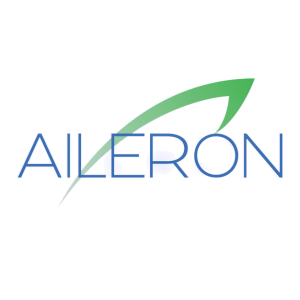Aileron Therapeutics to Host Conference Call to Discuss Results from Phase 1b Proof-of-Concept Study of Chemoprotective Therapy ALRN-6924 Being Presented at EORTC-NCI-AACR Annual Symposium
Aileron Therapeutics (ALRN) will host a conference call on October 26, 2020, at 8:30 a.m. ET to discuss data from a Phase 1b study of ALRN-6924, a unique therapy aimed at preventing chemotherapy-induced myelosuppression in patients with p53-mutated cancers. Results will be presented at the EORTC-NCI-AACR Annual Symposium. ALRN-6924 is notable as the only chemoprotective therapy in development utilizing a biomarker approach, designed to shield healthy cells while allowing chemotherapy to target cancer cells.
- Announcement of Phase 1b study results for ALRN-6924 that may impact treatment for p53-mutated cancer patients.
- ALRN-6924 is the first chemoprotective therapy using a biomarker strategy, potentially leading to fewer side effects for patients.
- None.
Insights
Analyzing...
WATERTOWN, Mass., Oct. 20, 2020 (GLOBE NEWSWIRE) -- Aileron Therapeutics (Nasdaq: ALRN) today announced that it will host a conference call and live webcast to discuss results from a Phase 1b proof-of-concept study of ALRN-6924 on Monday, October 26, 2020 at 8:30 a.m. ET. As previously announced by Aileron, the Phase 1b clinical data will be presented in a late-breaking poster presentation during the upcoming 32nd EORTC-NCI-AACR Annual (ENA 2020) Symposium on Molecular Targets and Cancer Therapeutics, being held virtually October 24 – 25, 2020. The abstract entitled, “Prevention of Chemotherapy-induced Myelosuppression in SCLC patients treated with the Dual MDM2/MDMX inhibitor ALRN-6924,” (LBA96) will be presented starting Saturday, October 24 at 10:00 a.m. CEST (4:00 a.m. ET), on the ENA 2020 website.
ALRN-6924 is the first and only chemoprotective therapy in clinical development to utilize a biomarker strategy by treating patients with p53-mutated cancers with the goal of limiting chemotherapy-induced toxicities and side effects. ALRN-6924, an investigational first-in-class MDM2/MDMX dual inhibitor, is a cell-permeating peptide drug that works intracellularly, activating wild-type p53 to selectively shield normal, healthy cells from chemotherapy in patients who harbor p53 mutations without interrupting chemotherapy’s targeting of cancer cells.
A live audio webcast of Aileron’s conference call will be available on the Investors section of Aileron’s website at https://investors.aileronrx.com/events-presentations. To access the call, please dial 877-705-6003 (domestic) or +1 201-493-6725 (international) five minutes prior to the start time and reference conference ID 13712133. The webcast will be archived on Aileron’s site for one year.
About Aileron Therapeutics
At Aileron, we are focused on transforming the experience of chemotherapy for cancer patients, enabling them to fight cancer without the fear or burden of chemotherapy-induced side effects. ALRN-6924, our first-in-class MDM2/MDMX dual inhibitor activating p53, is the only therapeutic agent in clinical development to employ a biomarker strategy to elicit selective chemoprotection for cancer patients. With this unique, targeted strategy, ALRN-6924 is designed to protect multiple healthy cell types throughout the body from chemotherapy while ensuring chemotherapy continues to destroy cancer cells.
In addition to potentially reducing or eliminating multiple side effects, ALRN-6924 may also improve patients’ quality of life and help them better tolerate chemotherapy, potentially allowing patients to complete their treatment without dose reductions or delays. Our long-term vision is to bring chemoprotection to patients with p53-mutated cancers – approximately
| Investor Contacts: | Media Contact: |
| Richard Wanstall, SVP Chief Financial Officer | Liz Melone |
| Aileron Therapeutics | 617-256-6622 |
| 617-995-2822 | lmelone@aileronrx.com |
| rwanstall@aileronrx.com | |
| Hans C. Vitzthum | |
| LifeSci Advisors, LLC. | |
| 617-430-7578 | |
| hans@lifesciadvisors.com |







